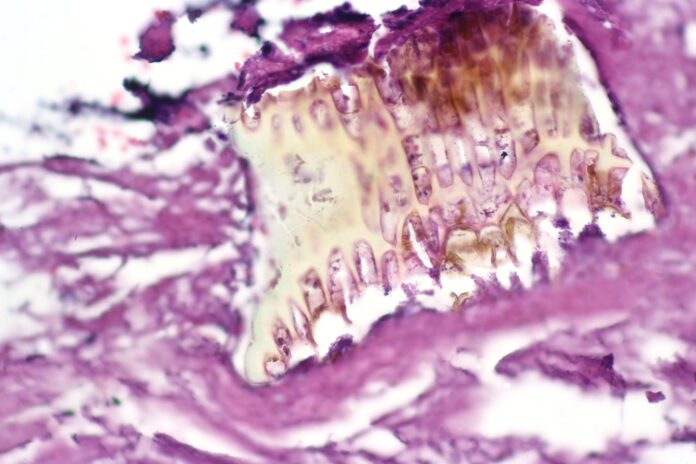
Peritonitis is a serious condition characterized by inflammation of the peritoneum, the membrane lining the abdominal cavity. It is most commonly caused by a bacterial or fungal infection, but can also result from other underlying medical conditions such as appendicitis, pancreatitis, or a perforated bowel. Peritonitis requires immediate medical attention and can be life-threatening if left untreated.
Recognizing the symptoms of peritonitis is crucial for early detection and treatment. In this article, we will discuss the common symptoms of peritonitis and how they can be identified.
Abdominal Pain
One of the hallmark symptoms of peritonitis is severe abdominal pain that may be localized or diffuse. The pain is often described as constant, sharp, and aggravated by movement or touch. It may also radiate to the back or shoulder and can worsen with coughing or deep breathing. In some cases, the pain may be so intense that it causes the individual to bend over or hold their abdomen in an attempt to relieve the discomfort.
If you experience sudden, severe abdominal pain, especially if it is accompanied by other symptoms of peritonitis, seek medical attention immediately as it may indicate a serious underlying condition.
Fever and Chills
Fever and chills are common symptoms of peritonitis and are indicative of the body’s immune response to the infection. The presence of a fever, with a temperature above 100.4°F (38°C), along with chills and sweating, suggests an underlying inflammatory process that requires prompt evaluation by a healthcare professional. In severe cases of peritonitis, the fever may be accompanied by delirium or confusion, which are signs of systemic infection and should be treated as a medical emergency.
Nausea and Vomiting
Peritonitis can cause nausea and vomiting, often resulting from the irritation of the abdominal lining and the body’s response to the underlying infection. The nausea may be accompanied by an inability to tolerate food or fluids, leading to dehydration. Persistent vomiting can worsen the symptoms of peritonitis and may indicate a more severe form of the condition, requiring immediate medical attention.
Loss of Appetite
Individuals with peritonitis may experience a loss of appetite due to the discomfort and pain associated with the condition. The inflammation of the peritoneum can interfere with the normal function of the digestive system, causing a lack of interest in food and a decreased intake of nutrients. If you notice a sudden and unexplained loss of appetite, along with other symptoms of peritonitis, consult a healthcare professional for further evaluation.
Abdominal Tenderness
Abdominal tenderness is a common sign of peritonitis and is often elicited by gentle palpation of the abdomen. The area of tenderness may be localized or diffused, depending on the underlying cause of the inflammation. The tenderness may worsen with movement or pressure, and in severe cases, the abdomen may feel rigid or distended. If you experience abdominal tenderness, especially in conjunction with other symptoms of peritonitis, seek immediate medical attention to rule out a serious medical emergency.
Change in Bowel Habits
Peritonitis can lead to a change in bowel habits, including diarrhea, constipation, or the inability to pass gas or stool. These changes may be accompanied by bloating, cramping, or a feeling of fullness in the abdomen. The alteration in bowel function is typically a result of the underlying infection or inflammation affecting the normal motility of the intestines. If you notice a sudden change in your bowel habits and suspect peritonitis, it is important to seek medical evaluation to determine the cause and receive appropriate treatment.
Fluid in the Abdomen
In severe cases of peritonitis, the inflammation of the peritoneum can lead to the accumulation of fluid in the abdominal cavity, a condition known as ascites. This may result in abdominal distention, discomfort, and difficulty breathing. The presence of fluid in the abdomen can be detected by physical examination or imaging studies such as ultrasound or CT scan. If you experience sudden abdominal distention or difficulty breathing, seek immediate medical attention as it may indicate a serious complication of peritonitis.
Rapid Heart Rate
Peritonitis can lead to an increased heart rate, also known as tachycardia, as the body responds to the underlying infection and inflammation. A rapid heart rate, often accompanied by shortness of breath and palpitations, may be indicative of a systemic inflammatory process that requires immediate medical evaluation. If you notice a sudden and unexplained increase in your heart rate, especially in the presence of other symptoms of peritonitis, seek medical attention promptly to determine the cause and receive appropriate treatment.
Difficulty Breathing
In severe cases of peritonitis, the inflammation of the peritoneum can lead to respiratory compromise, causing difficulty breathing or shortness of breath. This may be accompanied by chest pain, wheezing, or a feeling of suffocation. If you experience sudden difficulty breathing, especially in conjunction with other symptoms of peritonitis, seek immediate medical attention as it may indicate a serious complication that requires prompt intervention.
Jaundice
In some cases, peritonitis can lead to jaundice, a yellow discoloration of the skin and eyes resulting from the accumulation of bilirubin in the body. Jaundice may be indicative of a more severe form of peritonitis, such as cholangitis or pancreatitis, and should be evaluated by a healthcare professional to determine the underlying cause and initiate appropriate treatment.












